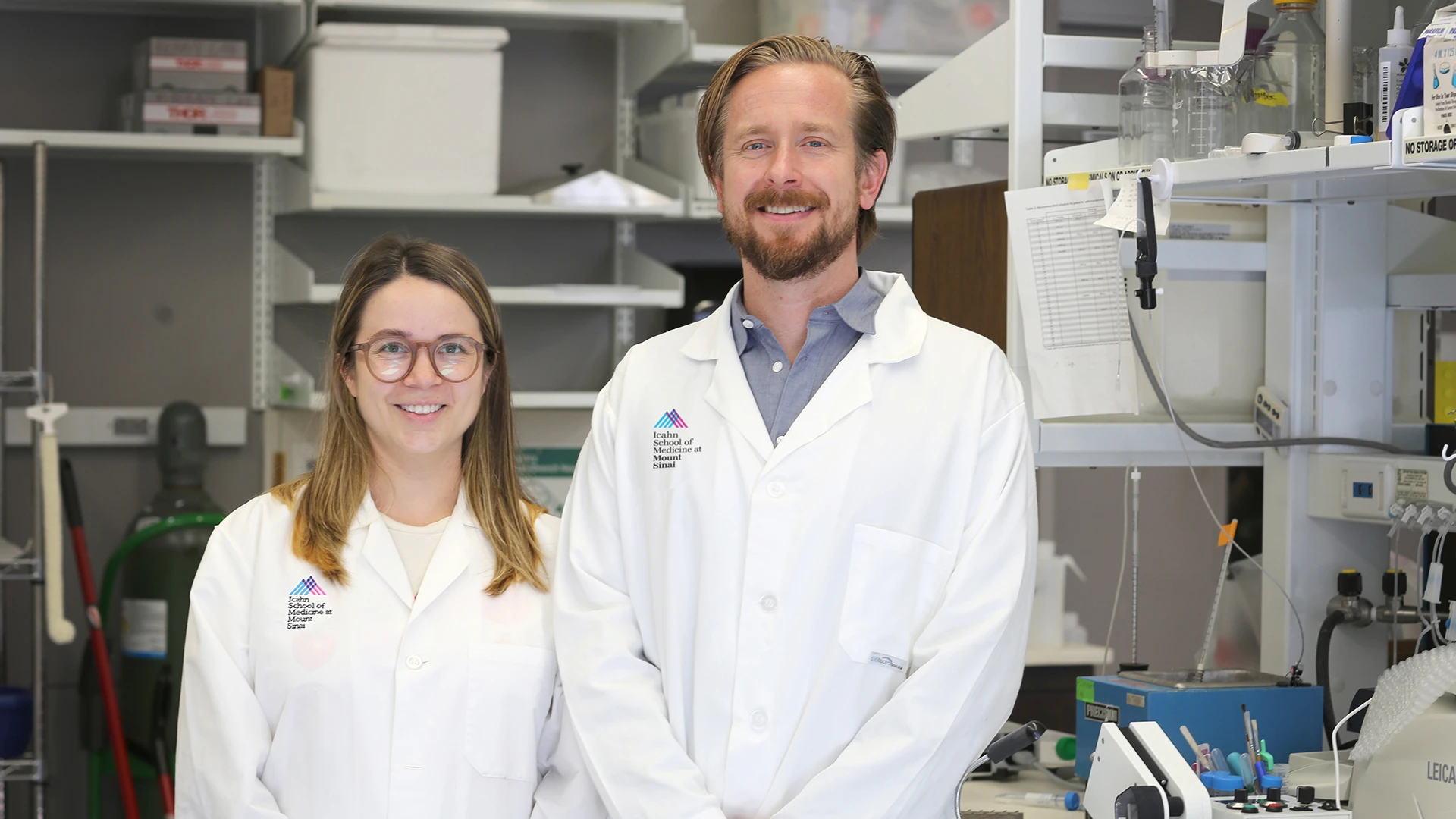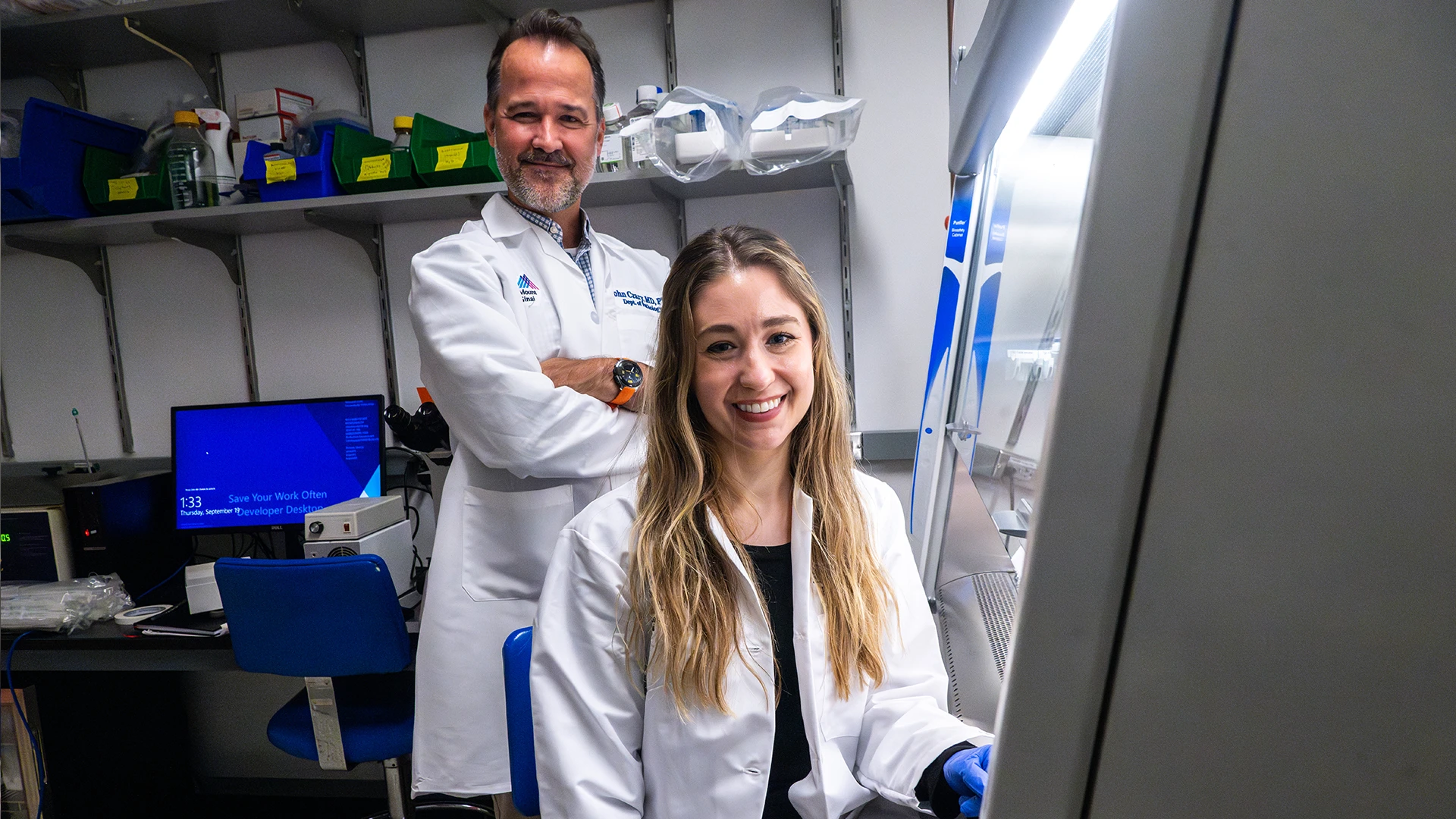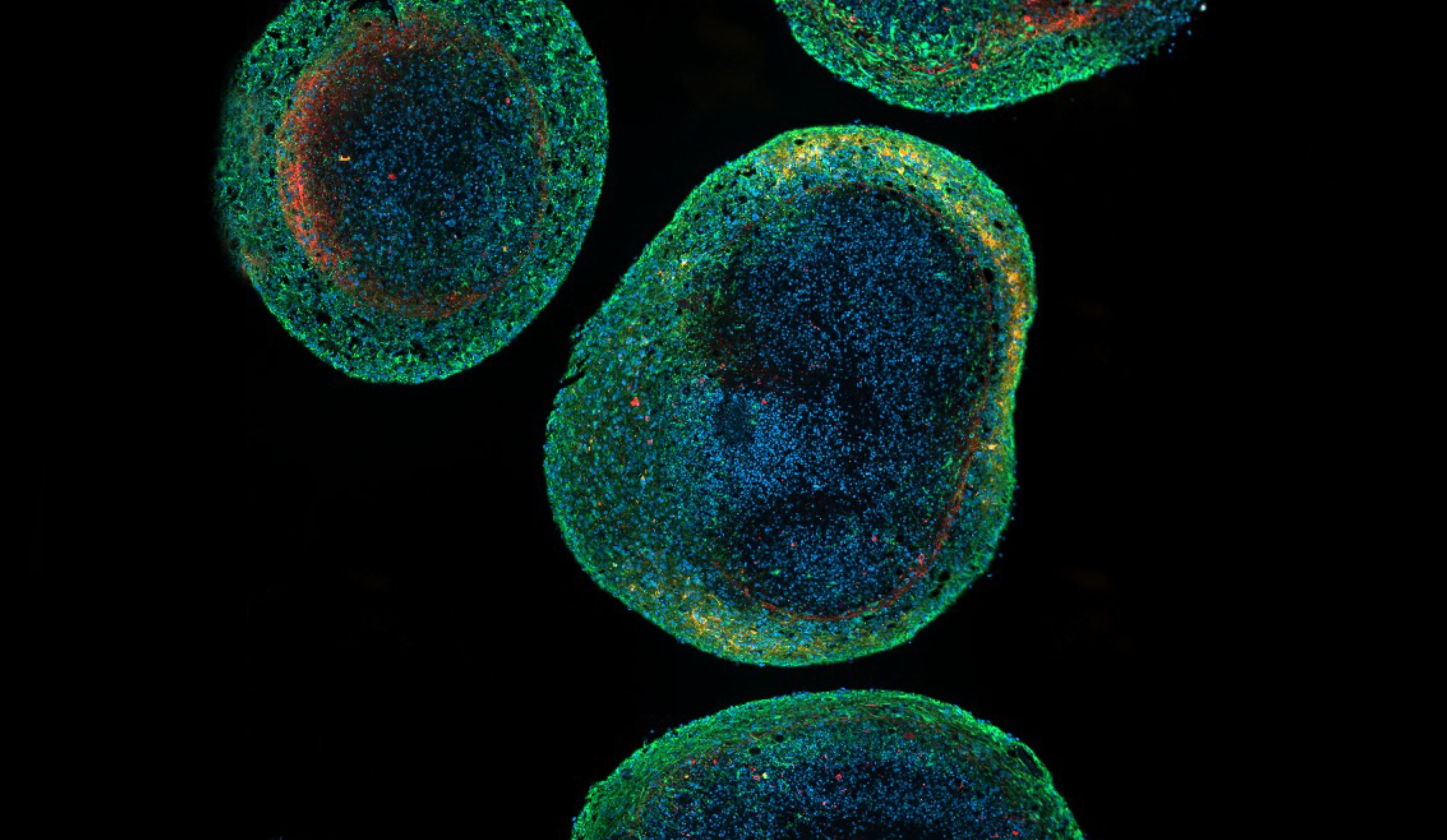2024 Friedman Brain Institute Doft Family Postdoctoral Innovator Awards Recipients:
Zoé Christenson Wick, PhD, Nash Family Department of Neuroscience. Dr. Christenson Wick is a postdoctoral fellow in the lab of Tristan Shuman, PhD, which uses the latest recording and manipulation techniques to examine how circuits control behavior and how abnormal circuit processing can lead to neurological diseases such as epilepsy and Alzheimer’s disease.
Zachary Pennington, PhD, Nash Family Department of Neuroscience. Dr. Pennington is a postdoctoral fellow in the lab of Denise Cai, PhD, which advances the study of how memories are stably stored and flexibly updated across time and experience.

Award recipients Zoé Christenson Wick, PhD, and Zachary Pennington, PhD.
The awards support innovative research by a postdoctoral fellow in any laboratory affiliated with The Friedman Brain Institute. The awards are generously supported by Jacob and Suzanne Doft, and Jacob’s parents, Arlene and Avrom Doft.
“My research investigates how distinct subtypes of inhibitory neuron in the rodent hippocampus alter their spike timing in epilepsy and is determining what role those spike timing changes play in seizure susceptibility and the cognitive deficits associated with epilepsy,” says Dr. Christenson Wick. “The research questions I am most drawn to are those that appreciate and leverage the subtle cellular and circuit-level changes that underlie pathologies, in particular those that underlie learning and memory deficits. I am committed to developing techniques and technology that will allow us to better understand the real-time consequences of these subtle changes in activity.”
Dr. Pennington says about his work: “I am focused on uncovering how traumatic psychological experiences leave a lasting imprint on the brain. The central aim of this work is to understand how trauma leads to devastating afflictions such as post-traumatic stress disorder and addiction, and how we can harness these insights to advance new treatments. Training at Mount Sinai has enabled me to leverage novel brain-imaging techniques to visualize how stress changes brain circuitry, and to utilize a complementary set of tools to causally test the influence of these circuits on behavior.”
2024 Robin Chemers Neustein Postdoctoral Fellowship Award Recipient:
Kristen Whitney, PhD, Department of Pathology, Molecular and Cell-Based Medicine. Dr. Whitney is a postdoctoral fellow in the lab of John F. Crary, PhD. Dr. Crary is Director of the Mount Sinai Neuropathology Brain Bank and Research CoRE. His lab is dedicated to uncovering the fundamental mechanisms of neurodegenerative diseases with a focus on the tau protein, the principal component of neurofibrillary tangles seen in Alzheimer’s disease and other disorders such as progressive supranuclear palsy (PSP).

Award recipient Kristen Whitney, PhD, with John F. Crary, MD, PhD.
Intended to encourage and support female research scientists, the fellowship was established in 2010 through a generous gift from Robin Chemers Neustein, JD, MBA, a former member of Mount Sinai’s Boards of Trustees. Recipients are senior postdoctoral scientists who intend to complete their training within two years, have demonstrated high-impact accomplishments in biomedical sciences, and exhibit the potential for an independent scientific career.
Says Dr. Crary: “Dr. Whitney is at the forefront of this effort, spearheading innovative research that uses stem cell-derived brain organoids to model PSP. Her work is specifically focused on understanding the role of the integrated stress response in tauopathy, helping to illuminate how cellular stress pathways influence the progression of tau-related diseases. Her contributions are critical in advancing our understanding of PSP, positioning her as a leader in neurodegenerative disease modeling.”
Dr. Whitney is passionate about her research. “My training background in both clinical and basic science research, and working with human samples and model systems, inspired the direction of my postdoctoral work in experimental neuropathology and human patient-derived brain cell model systems,” she says.
“I feel the most powerful way to identify therapeutic strategies for neurodegenerative diseases is to conduct patient-oriented research, focusing on the precious brain donations from our patient populations and developing new personalized, and thus clinically relevant-based, model systems, such as our ‘mini-brain’ organoids. I chose Mount Sinai for my postdoctoral training specifically to work with Dr. Crary because his background as a physician-scientist offered a unique opportunity to learn clinical and experimental neuropathology while conducting translational research.”
